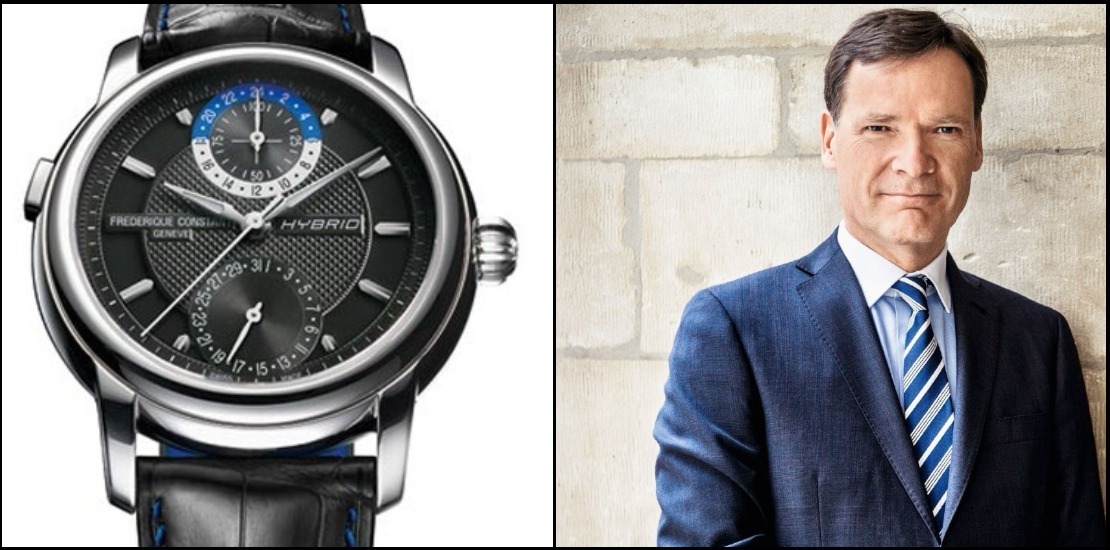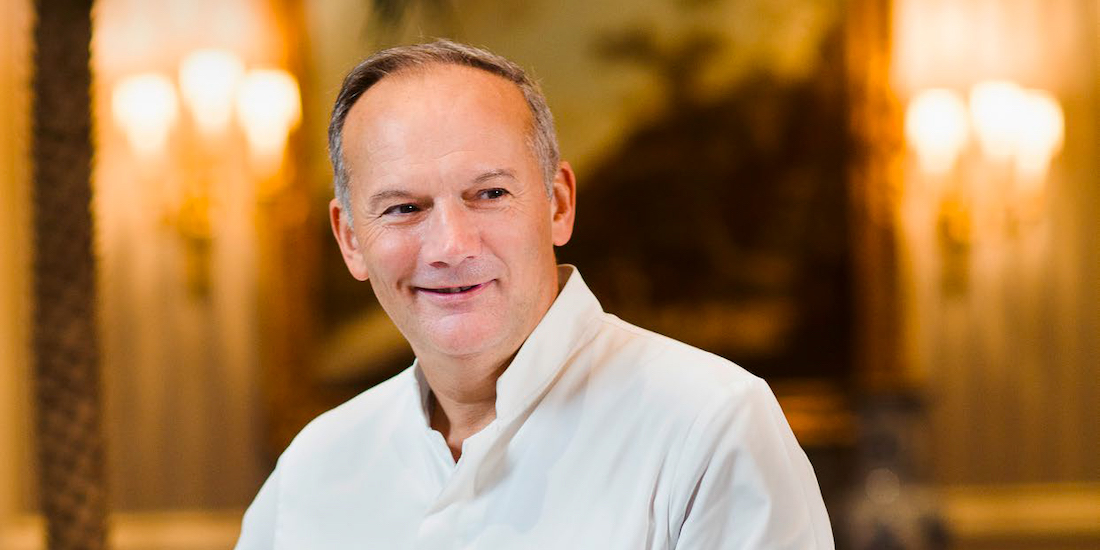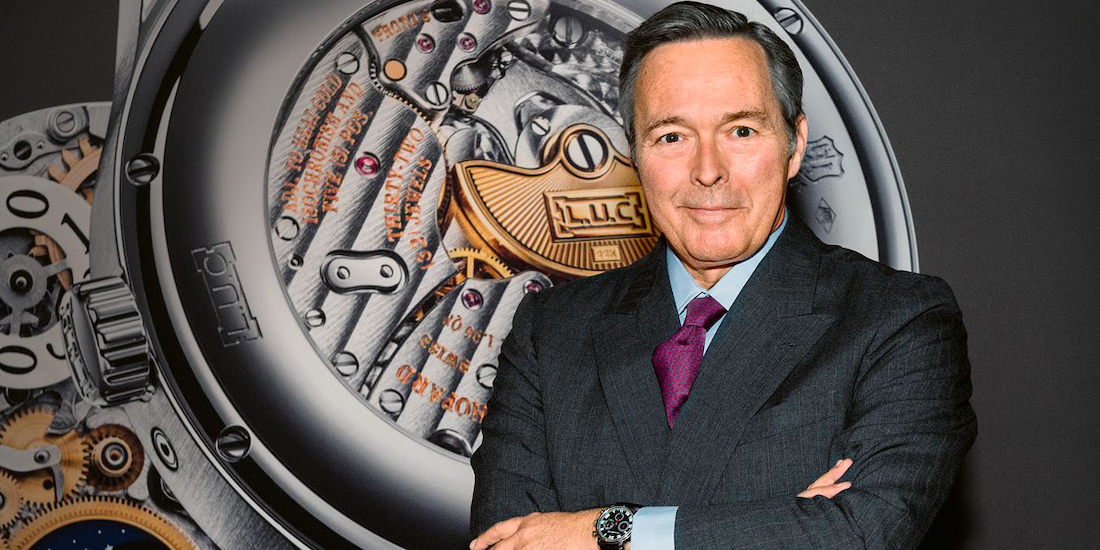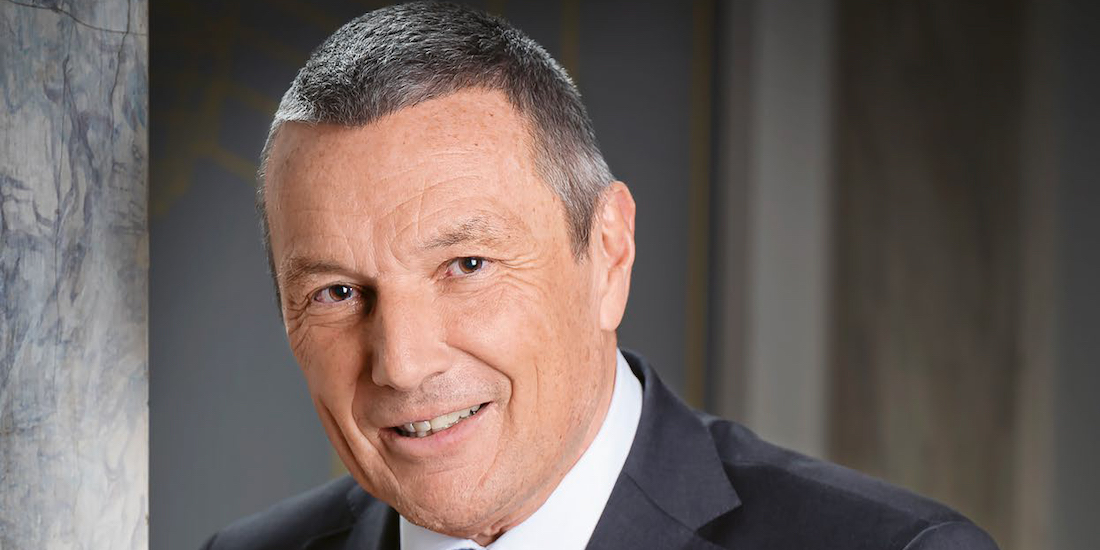
You presented your first smartwatch with a mechanical movement in February, the Hybrid Manufacture*: why in New York ?
We took the opportunity of my presentation at the Moving Forward conference on new technologies, bringing together hightech experts and opinion leaders from a variety of backgrounds, an occasion that enabled us to show how watchmaking tradition can combine with new technologies. During our event, we also welcomed American actor Mark Ruffalo, whose keen interest in science and technology is often showcased in his films (The Avengers, Iron Man, Now You See Me) and with whom we enjoy ongoing cooperation. He lives in New York and took part in the official launch of the Hybrid Manufacture.
Do you think there is significant potential for connected mechanical watches ?
First of all, this is a natural extension of our Horological Smartwatches launched in 2015, the first Swiss Made connected watches, of which we have already sold 50,000 and which account for 12% of Frédérique Constant sales (and over 20% for Alpina). They can already be regarded as a success. But a lot of people were asking us to what extent we were capable of incorporating these electronic functions within a mechanical watch. We have been working in this direction for two years. Not only does this culmination reinforce our know-how, but many smartwatch fans are looking forward to being able to wear a connected watch equipped with a mechanical Manufacture-made movement. For the time being, we have launched a production run of 3,000 units in four versions – which is relatively modest given that our Manufacture sells 25,000 watches per year – and we will then adjust quantities according to customer response. With regard to the Hybrid Manufacture’s functions such as sleep-pattern monitoring and activity tracking, we will develop the healthrelated coaching aspect that interests more and more people. This role means the watch must be worn on a daily basis and not only when taking part in sport, and it is thus all the more relevant for this watch to feature a traditional appearance.
Is this hybrid technology also intended for Alpina ?
Not for the time being, but our independent company MMT – which has developed the connected technology, including for other watch brands – will be able to offer integration of the electronic module into the mechanical movements of brands also wishing to offer smartwatches equipped with their own calibers. This will notably enable their customers to use the movement analysis function measuring the running rate, the amplitude and the beat error of the mechanical caliber. Wearers will then be able to consult the results daily via the dedicated app on their phone.
Which were the toughest obstacles that had to be overcome ?
On the one hand, eliminating magnetic effects linked to the electronic section of the watch, by means of an antimagnetic shield ; and on the other, accommodating the electronic components – patented transmission system, Bluetooth antenna, accelerometer (for sleep-pattern monitoring), microprocessor, analytical module and of course the rechargeable battery – within the extremely limited space available.
What will the highlights of the year be for Alpina and Frédérique Constant ?
First of all, the two brands have a new CEO since February 1st, Niels Eggerding, who has been working with our management team for a year already. Secondly, the construction of the new building of our Manufacture is moving ahead and we plan to move in at the start of 2019. Finally, we are continuing to innovate in terms of products, including for Alpina which unveiled at Baselworld a new model accompanied by a campaign on Kickstarter designed to accentuate the community-style approach to this product, the AlpinerX. We hope to unite a number of keen mountaineering enthusiasts around this model in a club-type spirit, loyal to the brand’s origins built on the “Alpinists” concept.
Do you regard the recovery being seen in the watch industry as sustainable ?
As far as the high-end segment of the watch industry is concerned, in-depth work has been done by a number of brands in order to streamline the market, realign their production and adjust to the sector’s current conditions, and I therefore think this recovery is solid. The situation with regard to quartz watches is however very worrying. The downward slide is continuing and the watch industry should show greater concern about this trend. I believe this drop is due to increased Apple Watch sales, notably of version 3 which is becoming increasingly popular. Their sales figures are not publicly released but I would estimate that they amount to around 20 million units per year. And people are beginning to express satisfaction with these models. The Swiss watch industry is in denial and appears unaware of the very real threat posed by this phenomenon. Especially since the priority Apple is currently placing on health and on interactivity with well-being will make their customers even more dependent on their watches.






